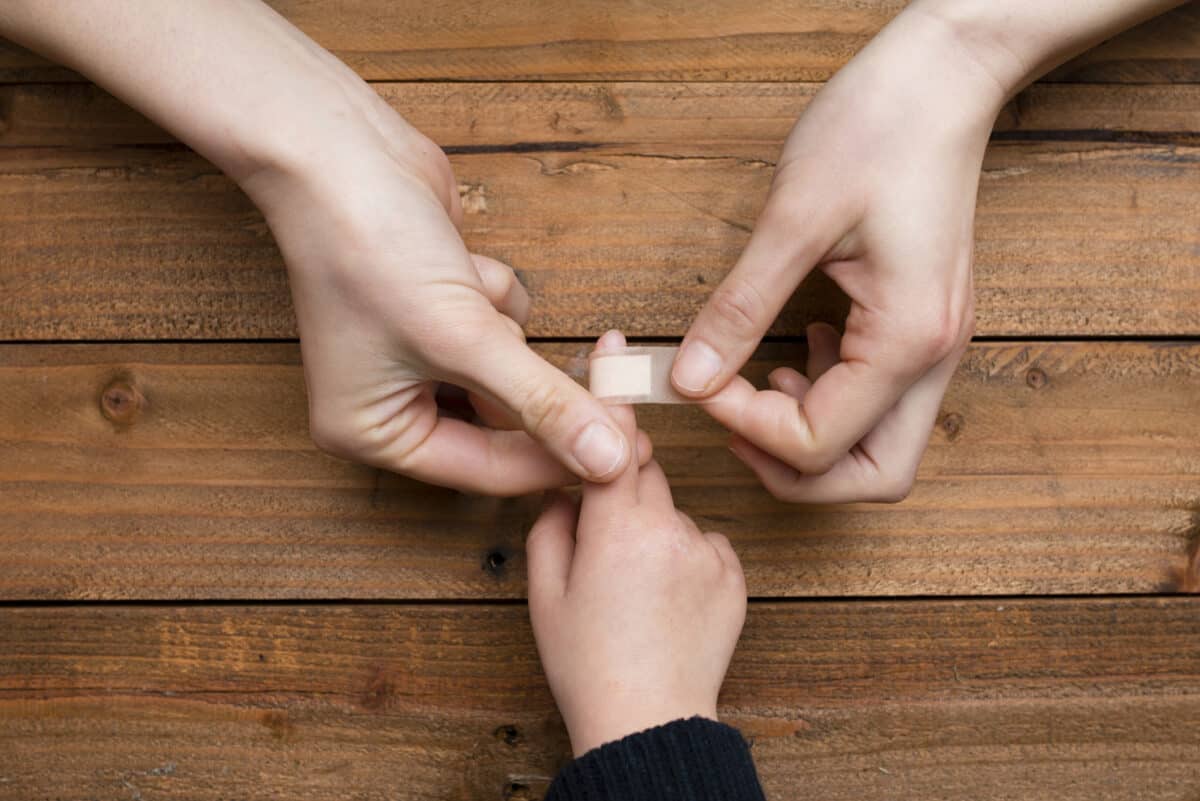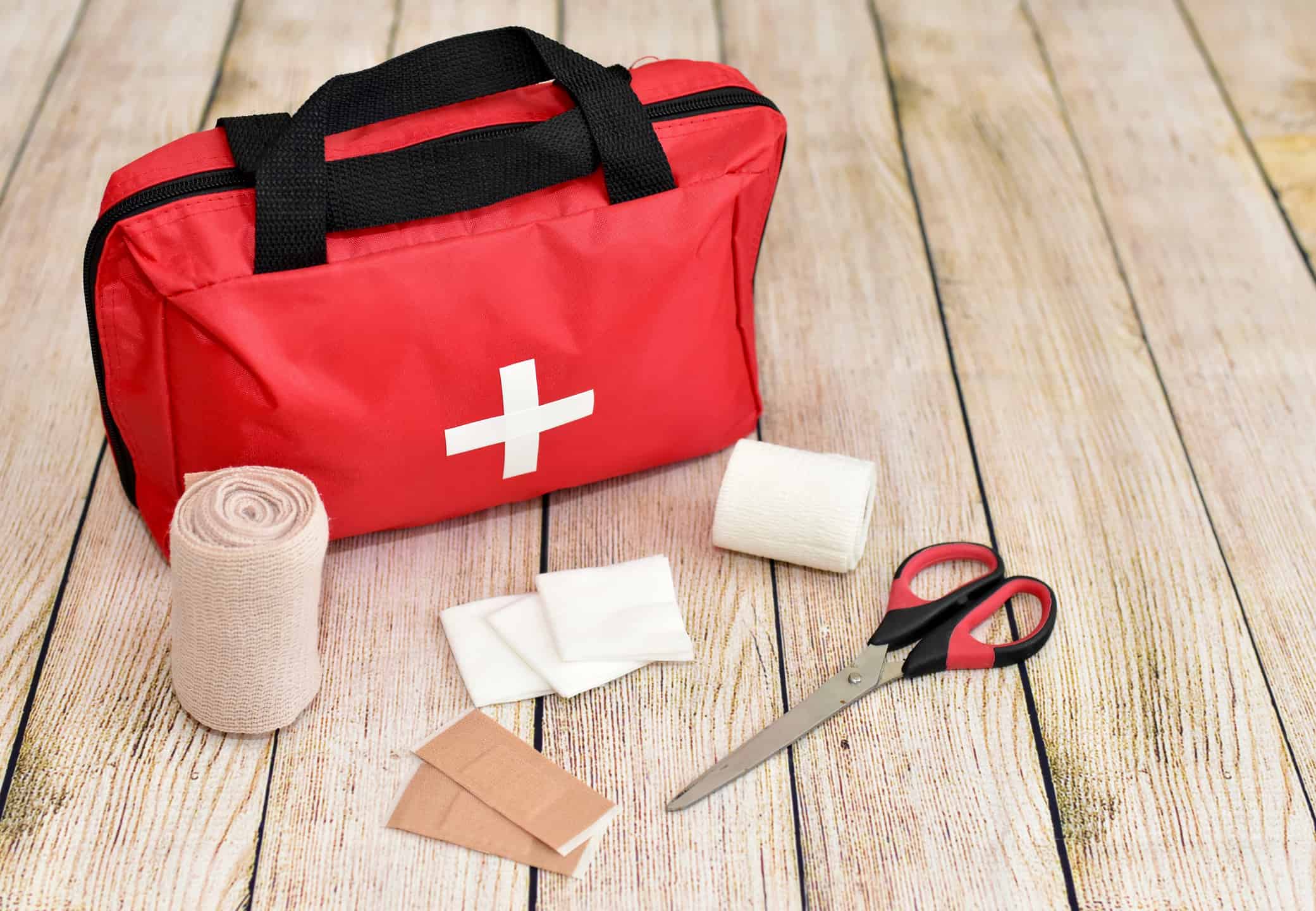While having a first-aid kit on hand at all times is a great idea, it's perhaps more so in the warmer months. Spring and summer, when you're outdoors more frequently and generally being more active, often bring more injuries — cuts, scrapes, bruises and bug bites topping the list of “owies” that may require the supplies found in a first-aid kit. So ensure you're ready for whatever ails your family with a well-stocked kit, making sure to throw out any expired products and replenish with new items as needed. Here is your first-aid checklist, courtesy of MomsWhoThink (and moms who have been there!).
Key Points
- The contents of this kit will help prepare you for a variety of injuries, from burns to stings to cuts.
- Make sure you take a CPR class, if you haven't already.
- Think about creating a first-aid kit for your pets, as well as yourself and your children.

©iStock.com/Hakase_
Basic First-Aid Supplies
- Alcohol or antiseptic wipes
- Elastic bandage
- Adhesive cloth tape
- Antiobiotic ointment, such as Neosporin
- Children's Tylenol or Children's Motrin (& adult and infant versions as well/as needed!)
- Band-Aids
- Burn cream or aloe vera gel for minor burns
- Hydrocortisone cream for itchy bites
- Calamine or Caladryl for poison ivy, oak and sumac rashes
- Cotton balls
- Q-tips
- Eye wash kit
- Instant cold pack
- Insect sting stick
- Scissors
- Sterile gauze pads
- Tweezers
- Tick removal kit
OPTIONAL/AS-NEEDED EXTRAS:
- CPR instruction card
- Disposable gloves
- EpiPen for severe allergies
- First-aid guide
- Hand sanitizer
- Wet wipes
Other First-Aid Must-Knows
In addition to having a well-stocked first aid kit, there are some things you need to know and do to be prepared for any first-aid situation. By being as prepared as possible, you'll feel more confident when the time comes, and you'll be ready.
Take a CPR class. If you haven't already, take a CPR class. If you have children or are around them frequently, take a class that includes instruction for how to give CPR to small children and infants. Taken a CPR class in the past? Make sure your certification is up-to-date.
Learn how to use an epi-pen. If you have an epi-pen in your kit, then you need to make sure you know how to use it. Remember the phrase “blue to the sky, orange to the thigh”. You don't want to accidentally administer the epi-pen to yourself instead of the person having an allergic reaction.
Keep any medications and ointments out of reach of children. Young children may not know any better, and may try to consume or play with medication and ointments. Keep all of these things well out of their reach. As soon as they're old enough, teach them the importance of never taking medication unless you need to.
If you have pets, consider a pet first-aid kit. Pets have different first aid needs than people, so you'll need a kit tailored specifically to them. Talk to your veterinarian about what should go in a pet first-aid kit, and make sure you know how to use all of the items inside.
Keep important phone numbers in the kit. This is especially true if this kit will be traveling with you. Important phone numbers include the cell numbers of both parents or guardians, two emergency contacts other than parents/guardians, and your physician. If you're making a pet first-aid kit, make sure your veterinarian's phone number is included. It may also help to include the number for the Poison Control Center.
Do not take the content of this article as professional medical advice. It's important to exercise due diligence when obtaining relevant information in matters pertaining to your health. Always consult with your healthcare provider before making any medical decisions.
The image featured at the top of this post is ©iStock.com/Kristin Mitchell.
